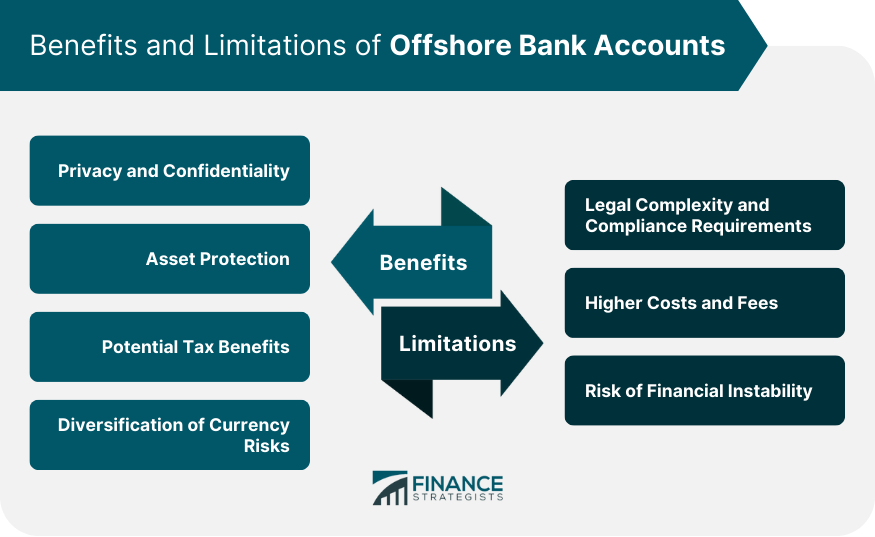Offshore Company Formations Examples: Practical Business Outcomes
Wiki Article
Demystifying Offshore Firm Formations: How They Operate and What to Expect
Offshore business formations can appear facility and enigmatic. Offshore Company Formations. These entities, typically developed for tax advantages and privacy, run under unique legal frameworks. Entrepreneurs may locate themselves navigating with a maze of policies and conformity requirements. Understanding the ins and outs is crucial for success. What are the actual advantages? What are the possible mistakes? A closer examination exposes the nuances that could impact decision-making considerablyComprehending Offshore Firms: Types and interpretations
Offshore companies are entities established in a territory beyond a person's or business's primary country of house, often for objectives related to tax obligation optimization, asset defense, or governing benefits. These firms can take different forms, including restricted responsibility business (LLCs), international service companies (IBCs), and offshore depends on. Each type offers details features and allures to various needs.Limited obligation business offer owners with defense from personal liability, while worldwide company companies are prominent for their adaptability and minimal coverage needs. Offshore counts on, on the other hand, are used largely for estate preparation and property security.
The selection of territory considerably influences the firm's operations, as some places supply more beneficial lawful structures and privacy securities. Offshore Company Formations. Comprehending the distinctions in between these kinds is crucial for individuals and services considering offshore structures, as each alternative brings various effects for governance and compliance
The Advantages of Developing an Offshore Business
Developing an overseas firm can supply numerous benefits, specifically for those looking for to improve their financial techniques and protect their assets. One considerable benefit is tax optimization; many jurisdictions supply desirable tax prices or exceptions, allowing companies to maintain even more earnings. Furthermore, offshore firms can offer a layer of personal privacy, shielding the identifications of owners and shareholders from public analysis.An additional advantage is property defense. By positioning possessions in an offshore entity, people can guard their riches from possible lawful cases or political instability in their home countries. This structure additionally facilitates international organization procedures, enabling easier accessibility to varied clientele and international markets.
The facility of an offshore company can enhance reputation and status, appealing to clients that value global organization practices. In general, these benefits make overseas company formations an attractive alternative for people and businesses intending for financial growth and security.
Key Factors To Consider Prior To Developing an Offshore Entity
Before creating an overseas entity, several vital elements must be analyzed. Legal conformity demands, tax ramifications and advantages, along with jurisdiction choice, play a substantial role in the decision-making process. Recognizing these factors to consider can help individuals and businesses browse the intricacies of offshore firm formations efficiently.
Lawful Conformity Needs
When considering the development of an offshore entity, understanding legal compliance requirements is necessary to assure adherence to both regional and international legislations. Possible entrepreneur need to familiarize themselves with laws regulating business enrollment, reporting obligations, and functional requirements in the picked territory. This includes confirming the legal requirements for supervisors and shareholders, along with ensuring conformity with anti-money laundering (AML) and know-your-customer (KYC) laws. In addition, businesses ought to stay knowledgeable about any type of licensing requirements certain to their industry. Involving neighborhood lawful and monetary specialists can provide beneficial insights, making certain that all needed documents is prepared and submitted correctly. Eventually, extensive understanding of lawful conformity helps minimize threats and cultivates a sustainable overseas procedure.Tax Effects and Advantages
Various local business owner think about the tax obligation implications and benefits of developing an offshore entity as an essential consider their decision-making process. Offshore business can offer considerable tax obligation benefits, such as minimized company tax prices, exception from particular regional tax obligations, and the capacity to postpone taxes on foreign earnings. These benefits can bring about boosted profitability and capital, making overseas frameworks appealing for worldwide company procedures. In addition, the possibility for tax obligation treaties might better lessen tax liabilities. It is important for company proprietors to understand the complexities included, consisting of compliance with both regional and global tax obligation guidelines. Engaging with tax specialists is recommended to browse these complexities successfully and ensure perfect tax obligation preparation strategies.Territory Option Elements
What factors should one take into consideration when picking a territory for overseas business development? Key factors to consider consist of tax performance, regulatory environment, and political stability. Jurisdictions with desirable tax regimes can substantially impact profitability. The regulative landscape ought to use adaptability and simplicity of compliance, enabling efficient organization procedures. Political stability is essential, as it ensures the safety and security of possessions and continuity of procedures. Furthermore, the reputation of the territory can influence customer count on and business connections. Availability to banking solutions and the accessibility of professional support solutions are also vital. Recognizing regional regulations regarding personal privacy, possession, and coverage demands is essential to determine that the overseas entity lines up with the organization owner's objectives and legal responsibilities.The Refine of Setting Up an Offshore Firm
Establishing an offshore business involves a series of critical actions that call for cautious preparation and compliance with global regulations. At first, a specific have to select an ideal jurisdiction that lines up with their organization objectives and uses favorable tax obligation advantages. Adhering to territory choice, the following step is to select an unique business name and prepare the essential documentation, including posts of consolidation and investor agreements.As soon as the paperwork is prepared, it should be sent to the appropriate authorities in addition to the required costs. After approval, the company will certainly receive a certification of unification, officially establishing its legal presence. The individual have to after that open up a company savings account to help with economic transactions.
Preserving an overseas firm entails sticking to continuous conformity needs, such as annual reporting and tax obligation commitments, which vary by territory. Comprehending each action is crucial for an effective offshore company formation.

Governing and lawful Framework for Offshore Companies
While establishing an offshore firm can supply significant advantages, it is necessary to steer with the complex legal and regulatory framework that regulates such entities. Each find more info territory has its own set of regulations that dictate everything from business development to tax and conformity demands. These regulations are made to stop illegal activities, such as cash laundering and tax obligation evasion, and commonly call for thorough paperwork and openness.Trick aspects of this structure include the need of assigning local supervisors, preserving an authorized workplace, and adhering to yearly reporting commitments. Furthermore, numerous territories enforce details licensing needs for specific company tasks. Recognizing these legal terms is vital for guaranteeing conformity and mitigating risks linked with fines or lawful disputes. Subsequently, involving with lawful professionals that specialize in offshore firms can aid in steering through this complex landscape, inevitably assisting in a certified and successful offshore business procedure.
Usual Misunderstandings About Offshore Firms
Lots of people hold misconceptions about offshore firms, often corresponding them with tax obligation evasion and illegal activities. Nonetheless, it is important to identify that these entities can operate legally within a structure designed for legit company methods. Making clear the lawful condition of offshore companies can aid eliminate these myths and advertise a more accurate understanding of their purpose.Tax Evasion Myths
Despite the expanding appeal of offshore firms, mistaken beliefs regarding their use for tax evasion linger. Several people erroneously think that establishing an offshore entity is exclusively a way to stay clear of tax obligations. Overseas business are often used for legit purposes, such as property security, worldwide company growth, and investment diversification. The perception that all offshore tasks relate to illicit tax evasion forgets the complexities of global tax obligation guidelines and conformity needs. Additionally, the large majority of overseas jurisdictions have carried out procedures to deal with tax obligation evasion, promoting openness and information exchange. This mischaracterization can prevent reputable services and investors from checking out the possible advantages of overseas business formations while bolstering an unfavorable stigma bordering these entities.Legal Condition Clarified
The lawful standing of offshore business is frequently misinterpreted, resulting in a variety of misconceptions. Lots of think these entities operate in a legal gray area, assuming they are dishonest or inherently unlawful. In truth, overseas companies are genuine services developed under the legislations of specific jurisdictions, developed for various factors, including possession protection and market expansion. One more usual misunderstanding is that offshore firms avert tax obligations totally; nonetheless, they undergo the policies and tax obligation commitments of their home nations. Additionally, some people assume that offshore companies can be quickly manipulated for money laundering or prohibited tasks. While abuse can occur, the majority of territories apply strict compliance and transparency legislations to mitigate such risks, guaranteeing that overseas companies operate within legal structures.
Handling and Operating Your Offshore Business Properly
Successfully handling and running an offshore firm needs a tactical technique that stabilizes compliance with regional guidelines and the quest of service objectives. Effective offshore management includes understanding the territory's tax obligation legislations, reporting needs, and functional regulations. Using neighborhood specialists, such as accounting professionals and legal experts, can give important understandings right into passing through these intricacies.Additionally, establishing clear communication networks and operational procedures is vital for maintaining performance. Using innovation for job administration and collaboration can boost efficiency, while normal performance assesses warranty positioning with strategic purposes.
Preserving robust financial records is vital, as transparency cultivates trust with stakeholders and complies with international standards. Lastly, being versatile to changes in regulation or market conditions permits overseas companies to pivot properly, assuring long-lasting sustainability and growth. By adhering to these principles, local business owner can make best use of the benefits of their offshore endeavors while mitigating dangers.
Regularly Asked Questions
Just how much Does It Price to Preserve an Offshore Business Yearly?
The expense to maintain an overseas firm each year differs substantially, commonly ranging from $1,000 to $5,000, depending on jurisdiction, solutions called for, and compliance responsibilities. It is important to think about added charges for particular demands.Can I Open Up a Checking Account for My Offshore Company Remotely?
Opening up a bank account for an offshore business from another location is generally feasible. Nonetheless, requirements may vary More Info by jurisdiction, typically necessitating documentation and confirmation processes, which can make complex the remote application experience for individuals.Are There Particular Nations Known for Easier Offshore Business Formations?
Particular countries, such as Belize, Seychelles, and the British Virgin Islands, are renowned for their favorable laws and streamlined processes concerning offshore business developments, bring in entrepreneurs seeking performance and privacy in service operations.
What Kinds of Companies Are Finest Suited for Offshore Firms?
Particular organizations, such as financial investment, shopping, and working as a consultant firms, usually gain from overseas companies due to tax obligation benefits, privacy, and governing versatility - Offshore Company Formations. These entities typically grow in territories that promote find here beneficial organization settingsJust How Can I Guarantee Compliance With Regional Legislations When Operating Offshore?
To assure compliance with neighborhood regulations when running offshore, it is necessary to engage legal experts, carry out detailed research on jurisdiction regulations, and preserve transparent economic records, thereby reducing risks associated with non-compliance.
Report this wiki page